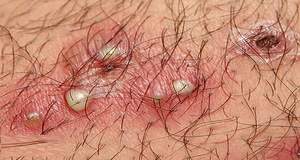What is Kawasaki Disease?
Kawasaki disease is an illness that involves the skin, mouth, and lymph nodes, and most often affects kids under age 5. The cause is unknown, but if the symptoms are recognized early, kids with Kawasaki disease can fully recover within a few days. Untreated, it can lead to serious complications that can affect the heart.
Kawasaki disease is most common among children of Japanese and Korean descent, but can affect all ethnic groups.
What Causes Kawasaki Disease?
Experts don’t know what causes the disease. The disease happens most often in the late winter and early spring.
What are the Symptoms of Kawasaki Disease?
Symptoms of Kawasaki disease include:
- A fever lasting at least 5 days.
- Red eyes.
- A body rash.
- Swollen, red, cracked lips and tongue.
- Swollen, red feet and hands.
- Swollen lymph nodes in the neck.
Get medical help right away if your child has symptoms of Kawasaki disease. Early diagnosis and treatment can often prevent future heart problems.
Who Is at Risk for Kawasaki Disease?
Kawasaki disease affects all ethnicities but is most common in children of Asian descent. Most patients are children under the age of 5.
Complications of Kawasaki Disease?
Doctors can manage the symptoms of Kawasaki disease if it’s caught early. Most kids will feel better within 2 days of starting treatment. Heart problems usually won’t develop if Kawasaki disease is treated within 10 days of the start of symptoms.
Untreated cases can lead to more serious complications, such as vasculitis, an inflammation of the blood vessels. This can be particularly dangerous because it can affect the coronary arteries, which supply blood to the heart.
How Kawasaki Disease be Treated?
Children showing symptoms of Kawasaki should be admitted to the hospital, and treatment should begin immediately to prevent damage to the arteries and heart.
The usual treatment includes high doses of aspirin to decrease inflammation and reduce pain, and a high dose of gamma globulin (an immune protein) given intravenously. Usually, a child will improve within a day.
The child may need to continue to take lower doses of aspirin for six to eight weeks after the fever goes away to prevent the formation of blood clots.
At present, there is no known way to prevent Kawasaki disease.


















